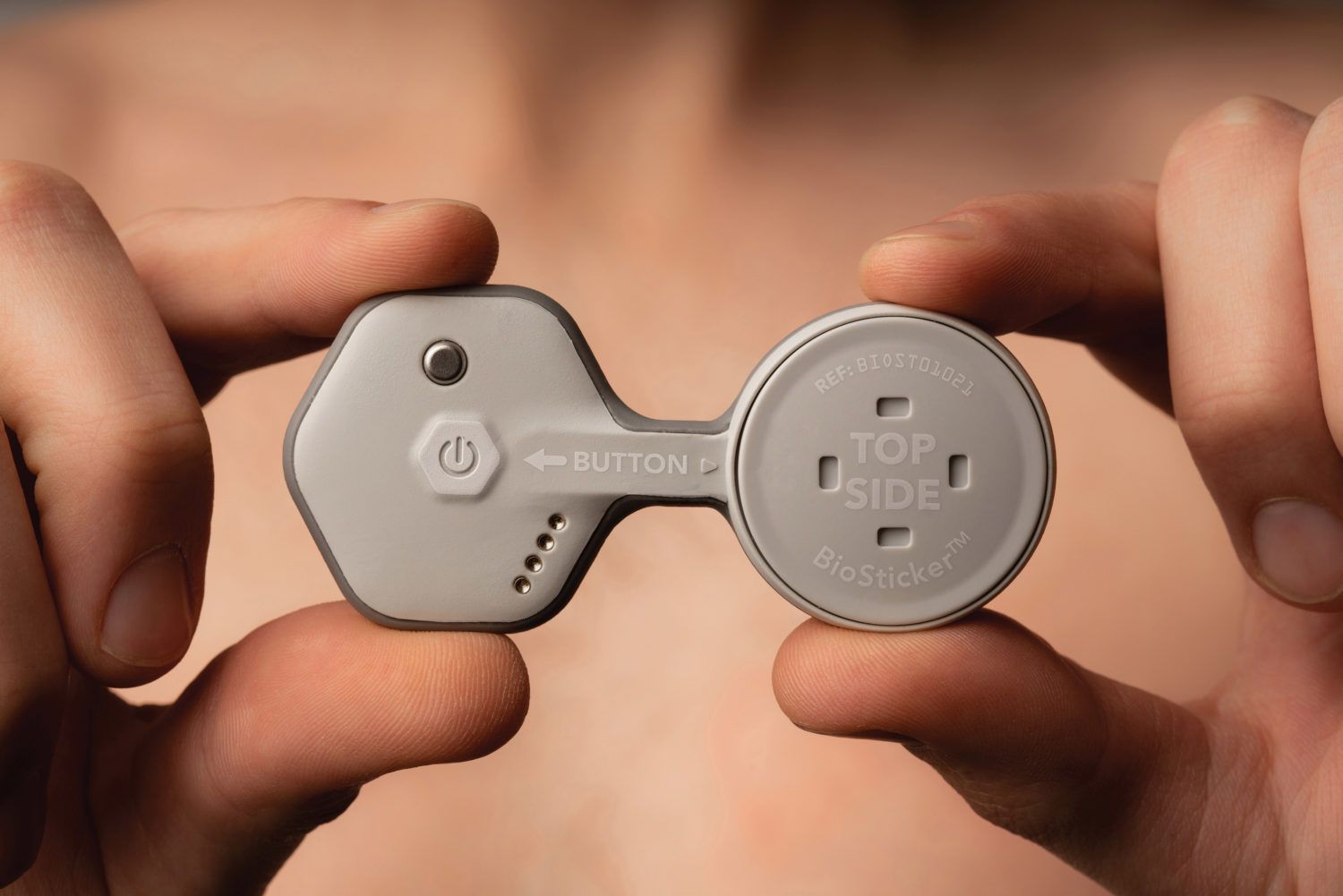
What You Should Know:
– Philips and BioIntelliSense has been selected by the U.S. Army Medical Research and Development Command (USAMRDC) to receive nearly $2.8M from the U.S. Department of Defense (DoD) to validate BioIntelliSense’s FDA-cleared BioSticker device for the early detection of COVID-19 symptoms.
– Working with the University of Colorado Anschutz Medical Campus, the clinical study will consist of 2,500 eligible participants with a recent, known COVID-19 exposure and/or a person experiencing early COVID-19 symptoms.
Royal Philips and BioIntelliSense, Inc., a continuous health monitoring and clinical intelligence company, today announced they have been selected by the U.S. Army Medical Research and Development Command (USAMRDC) to receive nearly $2.8M from the U.S. Department of Defense (DoD) through a Medical Technology Enterprise Consortium (MTEC) award to validate BioIntelliSense’s FDA-cleared BioSticker device for the early detection of COVID-19 symptoms. The goal of the award is to accelerate the use of wearable diagnostics for the benefit of military and public health through the early identification and containment of pre-symptomatic COVID-19 cases.
Medical-Grade Wearable for Early COVID-19 Detection
As millions of individuals have been screened and tested, the emerging research on traditional screening methods is revealing how challenging it is to detect the risk of COVID-19 infections early. Temperature checks have proven to be unreliable and even amplified testing (PCR) has proven to be ineffective in identifying the virus in the early days of infection.
The FDA-cleared BioSticker is an advanced on-body sensor that allows for effortless continuous monitoring of temperature and vital signs combined with advanced analytics, enables the BioSticker to identify statistically meaningful trends and screen for early potential COVID-19 infection.
“The medical-grade BioSticker wearable, combined with advanced diagnostic algorithms, may serve as the basis for identifying pre- and very early symptomatic COVID-19 cases, allow for earlier treatment for infected individuals, as well as reduce the spread of the virus to others,” said James Mault, MD, Founder and CEO of BioIntelliSense.
Clinical Trial Details
Working with the University of Colorado Anschutz Medical Campus, the clinical study will consist of 2,500 eligible participants with a recent, known COVID-19 exposure and/or a person experiencing early COVID-19 symptoms. Individuals may learn more about the study eligibility and enroll online at www.BioStickerCOVIDstudy.com. The research will focus on the validation of BioIntelliSense’s BioSticker for early detection of COVID-like symptoms, as well as assessment of scalability, reliability, software interface, and user environment testing.
Turning Data into Actionable Insights
While previous studies have shown potential using consumer wearables in relation to COVID-19, this study will leverage BioIntelliSense’s medical-grade wearable, the BioSticker, which enables continuous multi-parameter vital signs monitoring for 30 days and captures data across a broad set of vital signs, physiological biometrics and symptomatic events, including those directly associated with COVID-19. With its integration into Philips’ remote patient monitoring offerings, this is another example of how cloud-based data collection takes place seamlessly, across multiple settings, from the hospital to the home. Allowing data to be turned into actionable insights and care interventions, while providing connected, patient-centered care across the health continuum.
Dr. Vik Bebarta, the Founder and Director of the CU Center for COMBAT Research and Professor of Emergency Medicine on the CU Anschutz Medical Campus added: “The University of Colorado School of Medicine and the CU Center for COMBAT Research in the Department of Emergency Medicine are excited to be a lead in this effort that will change how we care for our service members in garrison and our civilians in our communities. The COMBAT Center aims to solve the DoD’s toughest clinical challenges, and the pandemic is certainly one example. With this progressive solution, we aim to detect COVID in the pre-symptomatic or early symptomatic phase to reduce the spread and initiate early treatment. This trusted military-academic-industry partnership is our strength, as we optimize military readiness and reduce this COVID burden in our community and with frontline healthcare workers.”
